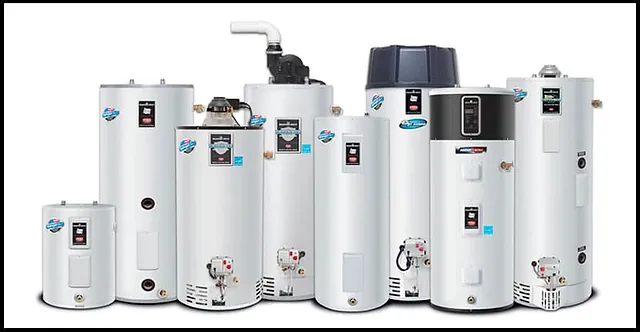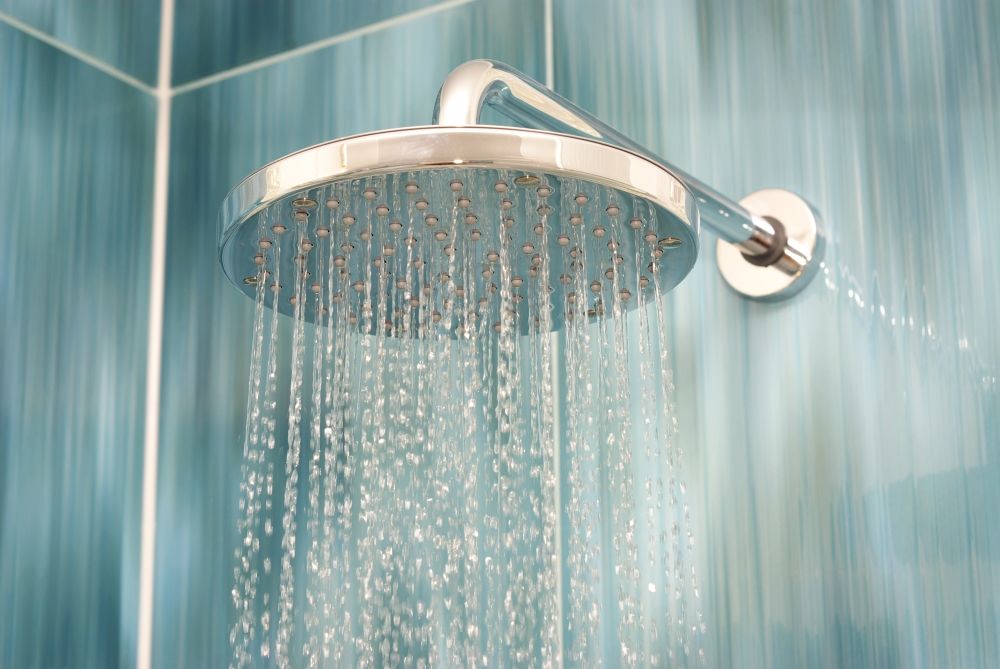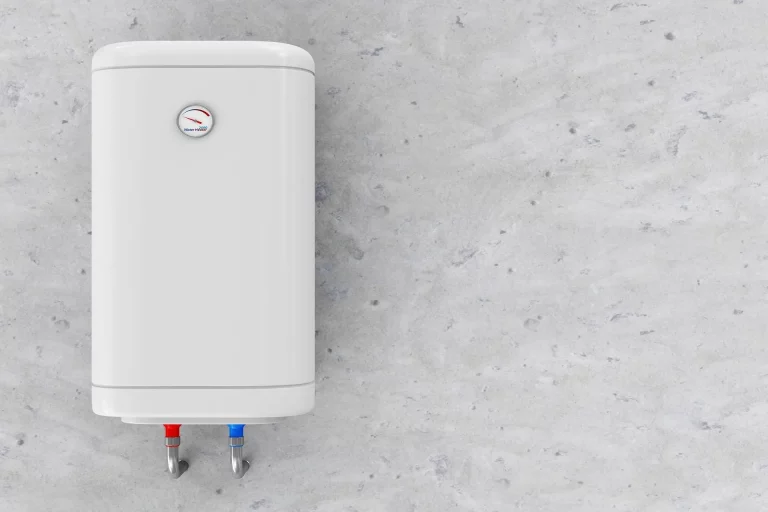Imagine stepping into a warm shower…
…only to be greeted by a cold splash.
After a long, tiring day, you want a warm shower that soothes your body. But sometimes, your hot water disappears quickly.
The heating issue often comes down to the size of your hot water heater. If it’s too small, it won’t meet your needs. But if it’s too big, you’ll end up paying more than you should on energy bills.
And there’s more bad news. A hot water heater that’s working too hard can break down sooner than it should. That means more headaches and more money spent on repairs or replacements.
But here’s the good news! You’ve found the right guide to solve this problem. We’re here to help you figure out the perfect size for your hot water heater.
This way, you can enjoy consistent and efficient hot water whenever you need it, without the stress of unexpected cold showers or sky-high bills.
The Importance of Hot Water Heater Sizes

Choosing the right size for your hot water heater is more important than you might think.
It’s not just about making sure you have enough hot water. It’s also about efficiency, saving money, and keeping your home cozy and comfortable.
First, let’s talk about the different kinds of hot water heaters.
You might have heard of tankless water heaters, traditional tank models, or even solar-powered ones. Each type comes in various sizes to fit different needs. For example, a tankless heater might be great for saving space and energy, but it needs to be sized correctly to provide enough hot water for your entire household.
On the other hand, a large tank might seem like it can handle anything, but if it’s too big, you’ll be paying to heat water you don’t use.
Now, two key terms you need to know for your hot water heater sizes are “First Hour Rating” and “Gallons Per Minute (GPM).” These might sound technical, but they’re actually pretty simple.
The First Hour Rating tells you how many gallons of hot water the heater can supply in an hour when it’s fully heated. This is super important for busy times, like morning routines.
GPM, or Gallons Per Minute, shows how much hot water the heater can provide at any given moment. This helps you understand if your heater can keep up with things like running the dishwasher and taking a shower at the same time.
Getting the size right means your water heater works efficiently without wasting energy or money. Plus, you won’t have to cut your showers short or wait for hot water, which makes everyone a bit happier at home.
Factors to Consider for Your Hot Water Heater

When picking the right size for your hot water heater, a few key factors come into play. It’s not just about the square footage of your home; it’s about who lives there, how you all use water, and even where you live.
Household Size and Water Usage
First up, think about how many people are in your home and what your water habits look like.
More people usually means more showers, more dishes, and more laundry. If your family loves long, hot showers or if you often have guests over, you’ll need a water heater that can keep up. It’s all about matching your hot water needs with the right size heater.
Peak Hour Demand
Now, let’s talk about peak hour demand.
This is a fancy way of saying the busiest hot water time in your house. Maybe it’s in the morning when everyone is getting ready for work or school. To figure this out, add up all the water you use during that busy hour.
Include showers, the dishwasher, and anything else that uses hot water. This total will help you find a heater that’s up to the task, so no one ends up with a cold shower.
Incoming Water Temperature
Also, consider the temperature of the water coming into your home.
This depends a lot on where you live. In colder places, the incoming water is much colder, which means your water heater has to work harder to heat it up. But in warmer areas, the incoming water is already pretty warm, so your heater doesn’t have to work as hard.
This can affect the size and type of heater you need. For example, in a colder climate, you might need a larger tank or a more powerful tankless heater to provide enough hot water for your family’s needs.
Energy Efficiency Goals

Energy efficiency is a big deal when it comes to choosing a hot water heater.
If saving energy and reducing your carbon footprint is important to you, this will influence the type and size of the heater you choose. More efficient models, like tankless or solar-powered heaters, often require different sizing considerations compared to traditional tank models.
An energy-efficient model might cost more upfront but can save you money in the long run by using less energy to heat the same amount of water. So, think about your long-term energy goals and how your choice of water heater fits into that plan.
Future Changes in Household
It’s also smart to think about any changes you expect in your household size or water usage in the near future.
Are you planning to add a bathroom or maybe a new family member? These changes can significantly increase your hot water needs. Choosing a water heater that can handle a bit more than your current demand might make more sense than having to upgrade in just a few years.
Planning for the future can help you avoid the hassle and expense of replacing a water heater that no longer meets your needs.
However, these factors are also true if you install a hot water heater in a commercial construction project. So, keep all these in mind.
By keeping these factors in mind, you can choose a hot water heater that’s just the right size for you.
Figuring Out The Size You Need

Choosing the right size for your hot water heater involves a few calculations to pinpoint exactly what you need.
But don’t worry, it’s simple math.
Let’s break down how to figure out your Gallons Per Minute (GPM) requirement, understand temperature rise, and look at some examples.
GPM Calculation
Gallons Per Minute, or GPM, tells you how much hot water your heater needs to deliver at any given time.
Here’s how to calculate it:
- List all the devices that use hot water in your home (showers, faucets, dishwasher, etc.).
- Find the GPM for each device. This info is often in the user manual or listed on the product.
- Add up the GPMs for all devices you might use at the same time. This total is your household’s peak GPM demand.
For example, if you might run the dishwasher (1.5 GPM) while someone is showering (2.5 GPM), your peak demand could be 4 GPM.
Temperature Rise
Temperature rise is the difference between the incoming cold water temperature and your desired hot water temperature.
Here’s how to calculate it:
- Determine the incoming water temperature. This varies by region; cooler regions have colder incoming water.
- Subtract this temperature from your desired hot water temperature (usually around 120°F).
For instance, if your incoming water is 50°F and you want it heated to 120°F, the temperature rise you need is 70°F (120 – 50 = 70).
Example Calculations
Single-Family Home
Let’s say you have a shower (2.5 GPM), a kitchen sink (1 GPM), and a washing machine (2 GPM) that might all be used simultaneously. Your peak GPM demand is 5.5 GPM. If your incoming water temperature is 50°F and you need to heat it to 120°F, you need a temperature rise of 70°F.
Apartment
In a smaller apartment with less simultaneous usage, you might only need a shower (2.5 GPM) and a sink (1 GPM) at the same time, totaling 3.5 GPM. With the same temperature rise of 70°F, you’d look for a smaller heater capable of meeting this demand.
Larger Household
For a home with multiple bathrooms, you might have two showers (5 GPM total) and a dishwasher (1.5 GPM) running together, needing 6.5 GPM. Again, with a 70°F temperature rise, you’ll need a heater that can handle this higher demand.
By calculating your home’s specific GPM demand and required temperature rise, you can choose a hot water heater that’s just right, avoiding the cost and inefficiency of a unit that’s too big or too small.
Enjoy Warm Showers With the Right Hot Water Heater Size

Getting the size of your hot water heater just right is key to a happy, comfortable home.
It’s not just about making sure you have enough hot water for a relaxing shower. It’s also about efficiency, saving money, and knowing you’re making a smart choice for your household.
A heater that’s too small leaves you in the cold, while one that’s too big hits your wallet harder than it should.
Remember, every home is unique. Your family’s size, your daily routines, and even where you live play a big part in choosing the right water heater.
We’ve walked through how to calculate your needs and what factors to consider, but this guide is just the beginning.
If you’re ever unsure, don’t hesitate to reach out to a professional. They can offer personalized advice and help you make the best choice for your specific situation.
After all, the goal is to enjoy that warm shower without a worry in the world. And with the right hot water heater size, that’s exactly what you’ll get.
BIO
Sam Everett is the Founder of Evolved Agents–a real estate mastermind that helps agents sell more homes using online ads and a virtual assistant. He provides free training through his YouTube channel, TikTok, and Facebook Page.

